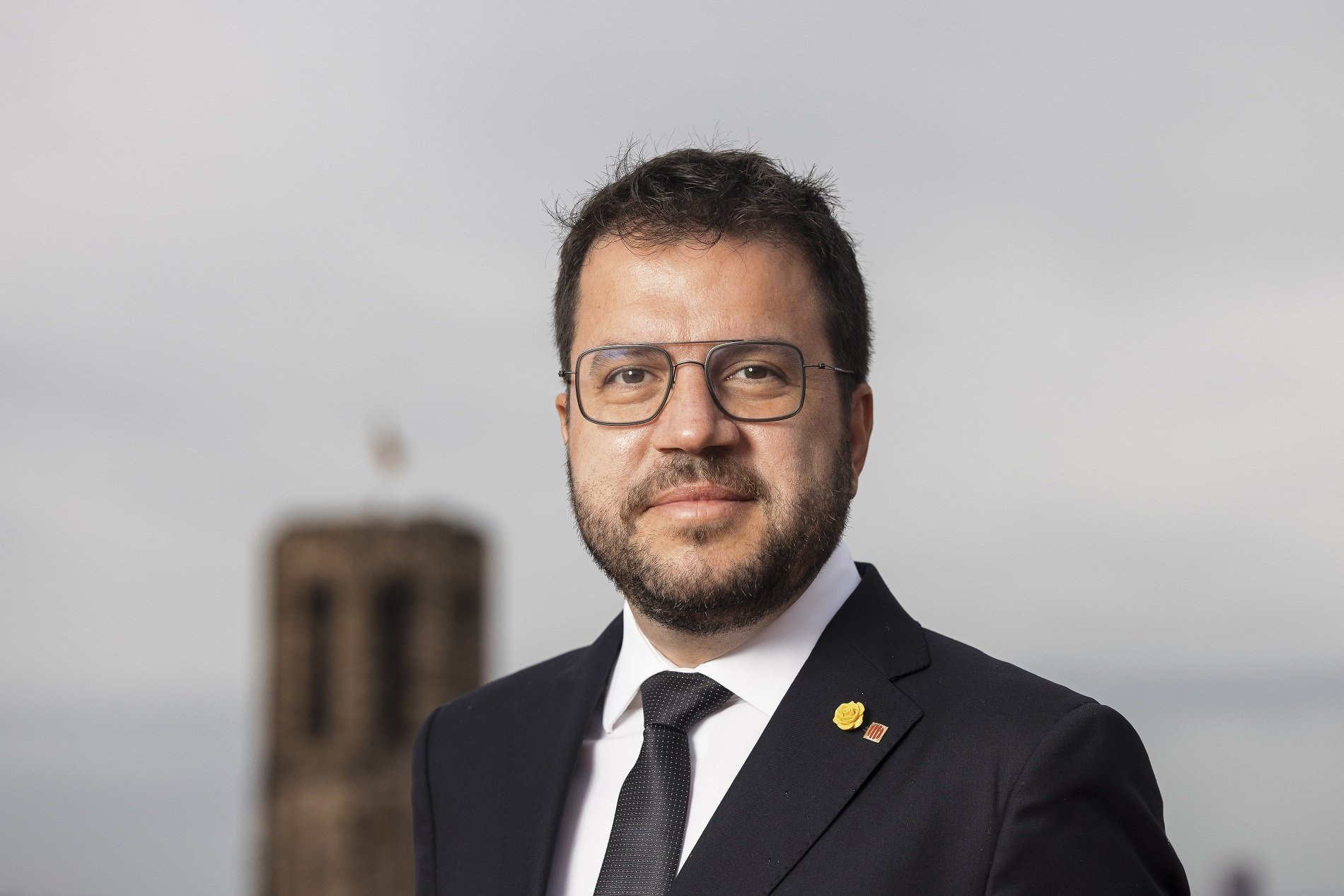The president of Catalonia, Pere Aragonès, will not abandon the dialogue table on the Spain-Catalonia political conflict even if there is a change of government on the Spanish side. With Spanish elections on the horizon, Aragonès has affirmed that the dialogue table will remain even if the right ends up governing in Spain. "Catalonia will not leave the negotiating table. And if Spain does, it will have to account for why it has done so," he added. "We won't give up on a process in which we continue demanding the holding of [an independence] referendum and an amnesty [on independence-related judicial prosecutions]", he assured. In an interview with the ACN news agency, the president asked for time to build "trust between the parties". The head of the Generalitat government asserted that at the last meeting between the two governments, on July 26th in Madrid, "partial agreements" were reached on which progress must be made "until a great final agreement is reached, which we argue must be an amnesty and an agreement to hold a referendum".
Another of the steps that was agreed at the July encounter was the de-judicialization of the conflict as well as measures relating to the Catalan language: protection of its status in Catalan schools and commitment to enable its use in the Spanish Senate and the European Parliament. In this regard, the head of the Catalan executive maintains that this agreement "must be understood as a confidence-building measure rather than an agreement on the substance of the negotiation". "It is one of those first agreements that allow us to see that both parties have the will to move forward," he commented. Regarding de-judicialization, Aragonès explained that the detailing of which instruments should be used for this is still pending. It is, therefore, "an open file" that must be addressed in the coming weeks. The government's goal, then, is for the necessary reforms or tools for de-judicialization to arrive before the end of the year. For that reason, Aragonès foresees "weeks of very intense work" in order to achieve this.
"And Spain's proposal for Catalonia?"
With reference to the dialogue table between the two governments, the president of the Generalitat affirms that future agreements will have to focus on "how to respond to the majority will for Catalonia to decide freely [on its political future]" and "how to end the repression". "The negotiation process must continue to make progress and the state will finally have to say what proposal it has for Catalonia. Our proposition is a referendum on independence. What is yours?" he explained. Regarding the proposals presented by the Spanish state, he acknowledged that, so far, he has only put specific proposals on the table "that could be used for other territories where there is no political conflict".
Aragonès detailed that each step taken with the Spanish government on the dialogue table is being transferred to the leaders of Junts, the other partner in the Catalan coalition government which has not taken part in the last two of the three meetings the table has held since being formed in January 2020. The ERC politician affirms that he "talks constantly" with Junts and will continue to work for the introduction into the dialogue process of "the more parties, the better". In the meantime, however, he has urged his partners to present a specific alternative to the dialogue table if they do not consider it adequate to resolve the conflict. For the moment, he says, no alternative that is "applicable" has been put on the table "either publicly or privately". "What I will not do is commit the irresponsibility of abandoning a dialogue process if I do not have an alternative," he said.
Relationship with the CUP
Aragonès also spoke about his government's relations with the third pro-independence party, the left-wing CUP, maintaining that the executive "continues to work on all aspects contained in the investiture agreement" agreed with them. The votes of the CUP's nine Catalan deputies were required for the formation of the government which Aragonès leads, but he noted that the anti-capitalists decided not to support the 2022 Catalan budget and, therefore, "the chain of confidences" cannot be continued. And he asserted that at present his government needs "stability, and solid majorities to pass the budget and carry out the transformations that the country needs". Despite this, he does not close the door to the reincorporation of the CUP. "Our hand is outstretched to the parties that supported the formation of the government and to those that facilitated the passing of the budget", insisted Aragonès, referring to the Comuns, alternative-left party which does not favour independence, whose negotiated support allowed the Catalan government to win approval for its accounts last year.

